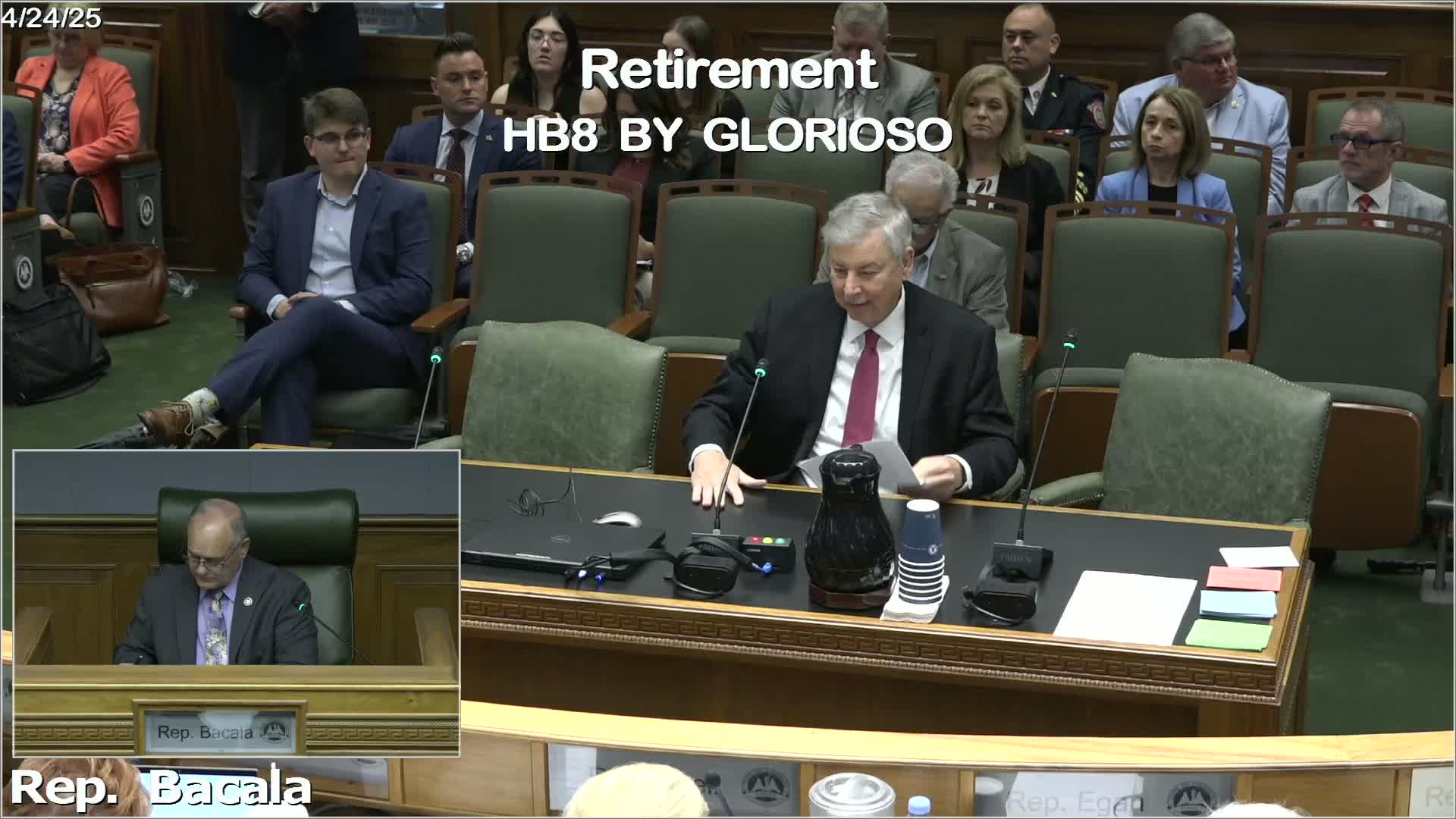Committee rejects bill to restore “30 years at any age” retirement eligibility for LASERS members
Get AI-powered insights, summaries, and transcripts
Subscribe
Summary
A bill that would let Louisiana State Employees' Retirement System members retire with 30 years of service at any age failed in the House Retirement Committee after debate over a $154 million actuarial cost.
House Retirement Committee members on April 24 rejected House Bill 9, which would have restored a pre-2006 rule allowing LASERS members to retire with 30 years of service at any age.
Representative Larry Bagley introduced the bill as a retention measure he said would help state agencies keep experienced employees. "This is a meaningful way to retain experienced professionals and keep institutional knowledge in our agencies," Bagley said.
The bill drew support from the Louisiana State Employees' Retirement System (LASERS). "LASERS has reviewed the impact and stands behind the bill," said Trey Boudreaux of LASERS, adding that the change would affect roughly 25,000 employees. LASERS actuary Shelly Johnson told the committee the system has seen increased turnover in recent years, making retention tools more urgent.
Opponents focused on the fiscal impact. Committee members repeatedly cited an actuarial estimate the bill would increase costs by about $154 million over 10 years (roughly $30 million per year) and raise ongoing costs by about $9 million annually. "That's a big hit to the state general fund," Representative Thomas said during debate. Legislative Auditor actuarial chief Kenny Herbold explained the $154 million figure and said the change would translate to roughly a 1.5% increase in employer contributions paid through agencies' existing funding streams.
Supporters countered that the cost would be borne through employer contribution mechanisms rather than a single line-item increase and argued the measure would be a recruitment and retention tool in tight labor markets. "We have some of the best employees anywhere you'll ever work," Bagley said. Several members said they support the intent but not the cost as proposed.
Representative Adams moved to report the bill favorably; Representative Thomas objected and requested a roll-call. The committee vote failed, 3 yeas to 8 nays. The committee did not adopt alternatives during the session; members discussed taking the issue to appropriations for further fiscal review.
The committee record shows LASERS and the Legislative Auditor provided detailed actuarial testimony; advocates asked for further study of complementary measures (for example, health insurance portability and targeted retention packages) before pursuing a costly statutory change.
HB 9 therefore will not advance from committee. Supporters said they may revisit the policy with additional options to reduce near‑term fiscal impact or to phase costs over time.
